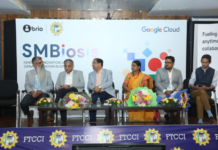
Why do some Digital transformation efforts succeed and others fail? Fundamentally, it’s because most digital technologies provide possibilities for efficiency gains and customer intimacy. But if people lack the right mind-set to change and the current organizational practices are flawed, Digital transformation will simply magnify those flaws
This is an exclusive interview conducted by the editorial team of CIO News with Rami Ayoob, CIO at Spark Tech Hub on trends of Digital Transformation.
Top trends of Digital Transformation in 2022:
Companies are pouring millions into “digital transformation” initiatives — but a high percentage of those fail to pay off. That’s because companies put the cart before the horse, focusing on a specific technology (“we need a machine-learning strategy!”) rather than doing the hard work of fitting the change into the overall business strategy first. Not only should they align tech investments with business goals — but they should also lean more on insider knowledge than outside consultants, acknowledge fears about job loss that those insiders may have, develop deep knowledge of how changes will affect customer experience, and use process techniques borrowed from the tech world (experimentation, prototyping, etc.) to facilitate change.
Digital transformation is the cultural, organizational, and operational change of an organization, industry, or ecosystem through smart integration of digital technologies, processes, and competencies across all levels and functions in a staged and strategic way.
Digital transformation leverages technologies to create value and new services for various stakeholders, innovate and acquire the capabilities to rapidly adapt to changing circumstances.
Present and future shifts and changes, leading to the necessity of faster deployment of a digital transformation strategy, can be induced by several causes, often at the same time, on the levels of customer behaviour and expectations, new economic realities, societal shifts, ecosystem/industry disruption and emerging or existing digital technologies.
The Fourth Industrial Revolution
- The Fourth Industrial Revolution is a way of describing the blurring of boundaries between the physical, digital, and biological worlds.
- It’s a fusion of advances in artificial intelligence (AI), robotics, the Internet of Things (IoT), 3D printing, genetic engineering, quantum computing, and other technologies.
- How will the Fourth Industrial Revolution affect business? As these technologies change what’s possible, they’re also transforming customers’ expectations, with technology enabling businesses to offer greater personalization and more valuable, connected experiences across online channels, customers already have more options than ever, and they’re not afraid to switch brands for a better experience.
- Framework: 1-Velocity 2-Scope 3-Impact 4-Gather Intelligence 5-Assess the situation (SWOT) 6- Evaluate the Strategy 7-Repeat the steps
Technical Leadership
- Hiring: Getting the best and brightest engineering talents is vital to a good technical leader, but so is diversity and inclusion. A functional team is a team that encompasses all points of view and voices.
- Motivation: As the leader of the team, you teach through example. In technical leadership, perhaps more so than other leadership fields, it boils down to a bottom-up approach: being a servant to the team, working side-by-side with them to help them solve problems and achieve their goals.
- Scale: Engineering leaders delegate and ensure their team is efficient and productive. They protect their team from distractions and interruptions by juggling all the many stakeholders’ needs and wishes while making stable, clear decisions. This empowers the group to work efficiently and productively, allowing the business to scale.
Leading with Innovation
- Innovation Stumble (Earning, Customer Feed Back, New Product).
- The logic of Innovation (Variety, Competitors, Scale the Best Idea).
- Combine Ideas
- Sandbox for Test Innovation (Faster Creativity).
- Design thinking with distance (Physical, Economic, Behaviour, Emotional).
- Collaborative Innovation.
- Corporate Skunk Work.
- Target Customer (Reimaging).
- Redefine Customer Value
- Re-Engineer the Value Chain.
- Frugal Innovation.
- Digital Transformation.
- Social Innovation.
Business Collaboration
- Modern workplace (Tools, Methods, When, Where)
- Sharing Information (File, Chat, Call, and Email)
- File Management (One Drive, SharePoint, etc.)
- Co-Editing (Offline, Online, Shared Drive)
- Conversation Tools (Email, Chat Manager)
- Call Tools (VoIP, Zoom, Teams, WebEx, etc.)
- Collaboration Workspace (Office365, Google suite)
- Framework: 1-Business Requirements 2-Mobile Workforce 3-Infrastructure Plan 4-Security 5- Gather The Information & Feedback
- Work with Agility: 1-Share link do not Attach 2-Email vs. Chat ( Yammer, Teams,…etc.) 3-Mobile Devices
- 4-Phone vs. Video Conversation 5-Co-editor control file
Why do some Digital transformation efforts succeed and others fail?
Fundamentally, it’s because most digital technologies provide possibilities for efficiency gains and customer intimacy. But if people lack the right mind-set to change and the current organizational practices are flawed, Digital transformation will simply magnify those flaws.
Also read: CIO News interviews Shri Wangki Lowang, Minister (IT) of Arunachal Pradesh
Do Follow: CIO News LinkedIn Account | CIO News Facebook | CIO News Youtube | CIO News Twitter
About us:
CIO News, a proprietary of Mercadeo, produces award-winning content and resources for IT leaders across any industry through print articles and recorded video interviews on topics in the technology sector such as Digital Transformation, Artificial Intelligence (AI), Machine Learning (ML), Cloud, Robotics, Cyber-security, Data, Analytics, SOC, SASE, among other technology topics





